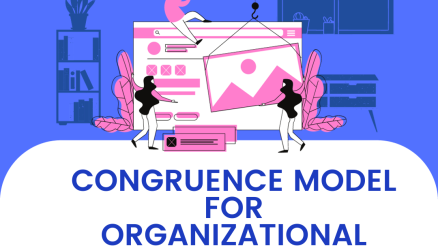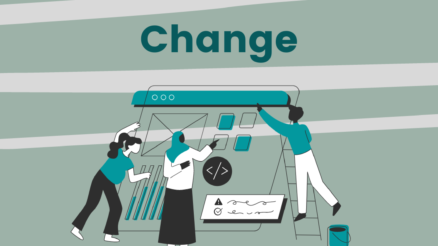Thinking about making a career change at 40?
You’re not alone! Many people in their forties start feeling the urge to switch gears and try something new in their professional lives.
It might seem daunting at first, but changing careers at this age can be a thrilling and rewarding journey.
Whether you’re looking for more satisfaction, a better work-life balance, or just a fresh start, making a career change at 40 is a brave step towards a happier and more fulfilling life.
Let’s dive into how you can navigate this exciting transition with confidence and purpose
Reasons for Making a Career Changes at 40
Understanding why people consider a career change at 40 is super important because it’s like mapping out the journey before taking the first step.
Think of it as figuring out why you want to move to a new city before packing your bags.
By knowing the reasons, whether it’s craving more fulfillment, feeling stuck in a rut, dealing with industry changes, or just wanting to grow personally, you can make a plan that really suits what you’re looking for.
It’s not just about leaving something behind; it’s about moving towards something that makes you happier and more fulfilled.
So, getting clear on these reasons helps ensure you’re not just jumping into something new for the sake of change, but making a thoughtful move that aligns with your deeper goals and desires.
You know, when folks hit 40, many start thinking, “Is this what I want to do for the rest of my life?” They’re searching for more meaning in their work, something that really lights a fire in their heart. It’s like they’ve been on autopilot, and suddenly they wake up craving a job that feels more like a calling than just a way to pay the bills.
That’s why many decide it’s time for a change, aiming to find a career that brings them true joy and satisfaction.
Dissatisfaction with Current Career
Then there are those who are just fed up with their current jobs. Maybe the passion has fizzled out, or the daily grind has become too much to bear. It could be the endless meetings, the office politics, or maybe they feel they’re just not making a difference.
Whatever the reason, turning 40 can be a wake-up call, pushing them to think, “I can’t do this for another 20 or 30 years.” So, they start looking for something new, something that excites them and makes them eager to get out of bed in the morning.
Industry Changes
In some cases, it’s not about personal satisfaction but about the shifting sands of the job market. With technology advancing rapidly, entire industries can change or become obsolete. Imagine working in a field for years, only to find it’s slowly disappearing or transforming into something unrecognizable.
For someone in their forties, this can be a big motivator to consider a career change, especially if they want to stay relevant and secure in the job market for the years to come.
Personal Development
Lastly, hitting the big 4-0 can also spark a desire for personal growth. People start reflecting on their skills and experiences, wondering what else they could be doing. It’s like they’ve been climbing a mountain, only to discover there are many other peaks to conquer.
They might crave new challenges, want to learn new skills, or simply feel that they’ve outgrown their current role. So, making a career change at 40 becomes a way to stretch their wings and see what they’re truly capable of.
Self-reflection to Understand Personal Motivations
Self-reflection is like sitting down with a cup of coffee and having a heart-to-heart chat with yourself. It’s all about digging deep to understand what really drives you.
Why?
Because knowing your personal motivations is key to making a career change that you won’t regret later. It’s like setting the GPS for your journey to ensure you’re headed in the right direction.
So, take some quiet time to think about what gets you excited, what parts of your current job you love, and what you daydream about doing if money or time weren’t issues.
Ask yourself, “What would I do if I knew I couldn’t fail?” or “What have I always wanted to try but never had the chance?” These questions can uncover your true passions and interests.
Reflect on your past experiences too. Think about times when you felt really alive and engaged at work.
What were you doing? Who were you with? What skills were you using? Answering these questions can reveal patterns that point to your core motivations and help you choose a career path that aligns with what you truly value and enjoy.
This self-reflection isn’t just navel-gazing; it’s about building a foundation for a career change that will bring you fulfillment and happiness in the long run.
Assessing your Current Situation
Assessing your current situation is crucial because it’s like setting the starting point for your career change journey.
It helps you understand where you stand professionally and financially, guiding your decisions and planning.
By evaluating your skills, experiences, and qualifications, you identify your strengths and areas for improvement, making it easier to find a career path that aligns with your capabilities and goals.
Financial assessment, on the other hand, ensures you have a realistic view of your economic situation, so you can plan for a transition without risking financial instability.
This comprehensive self-assessment provides a clear picture of your readiness for a career change.
Evaluating Current Skills, Experiences, and Qualifications
Assessing your current situation means taking a close look at what you bring to the table right now.
It’s like inventorying your professional toolbox to see what skills, experiences, and qualifications you have. Ask yourself, “What am I good at?” and “What have I achieved so far?”
Look at your work history, the roles you’ve played, the projects you’ve managed, and the skills you’ve developed. This isn’t just about your job title; it’s about the nitty-gritty of what you do and how you do it.
Think about your soft skills too, like communication, leadership, or problem-solving. Understanding this helps you see where you might fit in a new industry or role and identify any gaps you need to fill with further training or education.
Financial Assessment: Savings, Expenses, and Financial Obligations
Now, let’s talk money. Before leaping into a new career, you need to get real with your financial situation. This means looking at your savings, ongoing expenses, and any big financial obligations you have, like a mortgage or family commitments.
Why is this important?
Because changing careers might mean a period of reduced income if you need to retrain or start at a lower level in a new field. You need to know how long you can manage financially if things get tight.
Creating a budget can be super helpful here. Track your spending, see where you can cut back, and figure out how much you need to save to make your career change viable.
This financial assessment ensures you don’t run into unexpected money problems mid-transition, keeping your career change journey smooth and stress-free.
Personal Life Impact
Considering the personal life impact of a career change is essential because it affects more than just your work life; it touches every part of your existence, including your family and lifestyle.
If your new career requires long hours, travel, or even relocation, this can significantly alter your daily routine and family dynamics.
For instance, a job that demands more time away from home could strain relationships or affect your involvement in family activities.
Relocating for work can mean uprooting your family, changing schools for your children, and leaving behind a familiar social network, which can be stressful for everyone involved.
Researching and Identifying New Career Paths
To research and identify new career paths that align with your interests and strengths, start with self-assessment tools and career quizzes that can suggest fields you might not have considered.
Dive into industry reports and job market trends to understand which sectors are growing. Follow thought leaders and influencers on social media platforms to get insights into different industries.
Attend career fairs and workshops to learn about various roles and what they entail. This research can highlight paths where your skills and interests intersect with market demand, guiding you towards a fulfilling career change.
Strategies for Overcoming Challenges
To overcome these challenges, consider strategies like upskilling, networking, and seeking mentorship. Upskilling through courses or training can make you more competitive and confident in your new field. Networking can open doors to opportunities and provide support and advice from others who have made similar transitions.
Finding a mentor in your chosen industry can offer guidance, insights, and encouragement, helping you navigate the change more effectively. These strategies collectively help build a strong foundation for your new career, making the transition smoother and more successful.
Mental and Emotional Preparation for Change
Mental and emotional preparation is key to managing the stress and uncertainty associated with career changes.
It involves setting realistic expectations, maintaining a positive outlook, and developing resilience to cope with setbacks. Practicing mindfulness and stress management techniques can help you stay centered and focused.
Cultivating a support network of friends, family, and colleagues can provide emotional backing and encouragement. Preparing mentally and emotionally equips you to handle the challenges of transitioning to a new career, ensuring that you remain motivated and persistent in pursuing your goals.
Importance of Acquiring New Skills and Education
Acquiring new skills and education is essential when making a career change, especially at 40, as it helps bridge the gap between your current expertise and the requirements of your new career path.
This process not only enhances your employability in a new field but also boosts your confidence, ensuring you are well-prepared and competitive.
Education and skill development are critical for staying relevant in today’s fast-changing job market, enabling you to adapt to new technologies and industry standards and making you a more attractive candidate to potential employers.
Options for Education and Training
When looking to acquire new skills and education, there are several options available, catering to different needs and lifestyles. Online courses offer flexibility and convenience, allowing you to learn at your own pace from anywhere.
Certifications can provide specialized knowledge and skills in a particular area, often recognized by employers as evidence of competency.
Part-time degrees or evening classes can be a good fit for those who need to continue working while studying. These various educational paths offer the opportunity to gain the knowledge and qualifications needed to successfully transition to a new career.
Balancing Learning with Current Job Responsibilities
Balancing learning with current job responsibilities can be challenging, but with effective time management and planning, it’s definitely achievable. It requires setting clear priorities and establishing a structured schedule that allocates specific times for studying and completing coursework.
It may also involve negotiating flexible work hours or dedicating weekends or evenings to study. The key is to find a balance that allows you to progress in your education without compromising your job performance or personal well-being.
Steps to Create a Comprehensive Career Change Plan at 40
Creating a comprehensive career change plan involves several key steps:
Timeline: Establish a realistic timeline for your career transition, considering factors like required training or education, notice periods for leaving your current job, and the time needed for job searching.
Goals: Define clear, achievable goals for what you want to accomplish in your new career, including short-term objectives and long-term aspirations.
Action Items: Break down your goals into specific action items, such as updating your resume, enrolling in relevant courses, or attending networking events. Assign deadlines to each task to keep yourself on track.
Setting Realistic Expectations and Milestones
Setting realistic expectations and milestones within your career change plan is essential for maintaining motivation and measuring progress.
By establishing realistic milestones, you can celebrate small victories along the way, which can provide motivation and a sense of achievement.
These milestones also help you assess whether your strategies are working or if you need to adjust your approach, ensuring that your career change is progressing as planned.
Searching Job in a New Industry
When job searching in a new industry, it’s important to understand key players, and current trends to tailor your job search effectively.
Start connecting with professionals in the industry through networking events, LinkedIn, or alumni associations to gain insights and learn about job openings.
Emphasize skills and experiences from your previous career that are relevant to the new industry in your applications and interviews.
Be open to entry-level positions and consider starting in a lower-level position to gain industry-specific experience.
Crafting a Resume and Cover Letter for a Career Change
For a career change, your resume and cover letter should highlight the skills and experiences that are applicable to the new industry or role.
Instead of a traditional chronological resume, opt for a format that emphasizes your skills and achievements.
Explain your career change and for this purpose always us your cover letter to articulate why you are making the career change and how your background makes you a strong candidate for the new field.
Interview Strategies for Career Changers
During interviews, career changers should prepare to explain your career transition, what are your reasons and how your previous experiences have prepared you for this new path.
Show enthusiasm for the new industry by discussing what you have learned and how you plan to contribute.
Provide specific instances from your past roles where you utilized skills relevant to the new industry.
Assimilating into a New Career or Industry
To assimilate into a new career or industry, you need to immerse yourself in the industry culture, learn about the industry’s best practices, trends and jargons to understand the ecosystem better.
Be willing to learn and adapt to new ways of working or different organizational cultures.
Regularly ask for feedback to understand how you can improve and meet the expectations of your new role.
Building a New Professional Network
You need to build a new professional network by attending conferences, seminars, and networking events to meet peers and leaders in your new field.
Use social media platforms like LinkedIn to connect with industry professionals, join relevant groups, and share content that reflects your new career interests.
Participate in industry-related volunteer opportunities or collaborative projects to build relationships and demonstrate your skills.
Continuous Learning and Growth in the New Role
Stay updated with industry developments and enhance your skills through courses, workshops, and certifications.
Regularly set and review career goals to focus on your professional growth and ensure you are on track to achieving your long-term aspirations.
Look for opportunities within your new role that will allow you to take on new challenges, leading to personal and professional development.
Final Words
Wrapping it all up, making a career change at 40 might seem like a big leap, but it’s definitely doable and can be incredibly rewarding. It’s all about understanding why you want that change, assessing your current situation, and then planning and executing your move with confidence. Remember, it’s not just about finding a new job; it’s about creating a fulfilling life that aligns with who you are and what you want. So, take that step, embrace the challenge, and trust that your experience and wisdom at 40 are huge assets in this journey. Making a career change at 40 isn’t just about starting anew; it’s about moving forward to a more satisfying and exciting chapter in your life.



